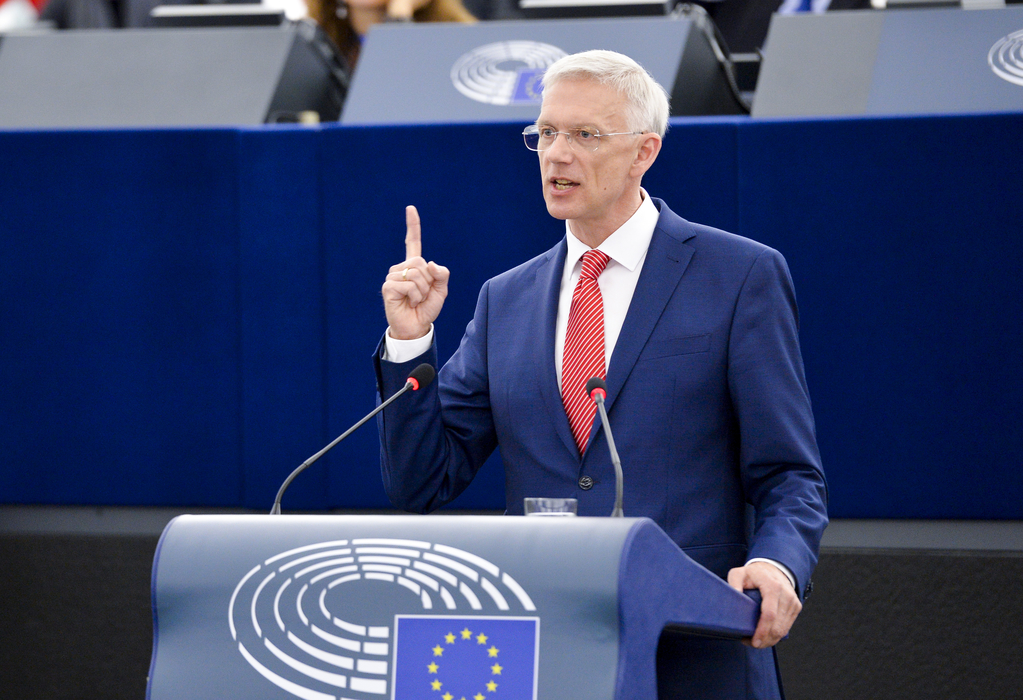Following a speech starting 11:00 Rīga time (08:00 GMT), various other parliamentarians responded to his address, with Jean-Claude Juncker, Manfred Weber, and Roberts Zīle among those on the agenda.
You can watch the speech below. It starts in Latvian, adds a dash of German and segues into English for most of its length.
"We have not regretted it a single day since we joined the EU," Kariņš told his audience to applause.
He also said the EU should not go down the route of protectionism "like China" but should instead pressure China to open up to competition.
"We're going to have the cleanest and the most resilient banking system in Europe," he said of Latvia's banking sector clean-up, but argued that oversight needed to be co-ordinated to cover the whole of Europe.
'We have to clean the whole neighborhood," he said.
On the question of immigration he said integration was the key: "The arrivals, they need to adapt to our cultures because that's the way of the world," he said.
On security, "It's no secret to anyone that when Latvians think of safety, we think of Russia," he said. "Right now the biggest threat from Russia is not military, the biggest threat is from false, misleading and downright lying information."
"What are they looking to do? To divide society," he said, arguing that Russia was the origin of such phenomena as anti-vaccination advocacy, and that it had contributed to Brexit and the vilification of George Soros.
"We have to consider legislation," he said, while adding that we would always oppose censorship.
He also spoke up in favor of equal treatment for Baltic farmers. "The only way they can compete is at the cost of their own well-being," he said, "If we subsidize we should do it across the board equally for everyone."
"The EU is not, and never will be perfect. It's not. But it's the best damn thing I can think of," he concluded.




























